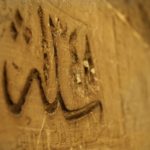Since many years we organize a cleaning up activity in the desert of Sinai with our staff and Bedouins. Since a few years we also included our clients, family and friends from Europe.
It was a big success. Everybody was very motivated to clean and we had wonderful trips together. Participants came from different countries and ages ranged from 17 to 80 years and we collected lots of bags of garbage and many Bedouins and children in the area joined in. We were assisted by the men of the National Parks Authority and also by our colleague Ayman . The Egyptian television even made a film which was shown on national television.
It is great to know that so many people care for a clean environment and actually want to do something to achieve that………
Our company SYCAMORE TRAVEL is committed to the Sinai and its people and will keep on organizing activities like this in order to improve the situation in this delicate desert area as to save it for the future.
This year’s WALK and CLEAN will be from 22.09.2013 till 29.09.2013.
The program is as following:
22.09 Arrival in Sharm el Sheikh, transfer to Dahab by bus. / Dyarna Hotel.
23.09 Transfer to the starting point of the trekking. Depending on the group size we will split up in different groups as to reach as much as possible areas.
24.09 WALK and CLEAN.
25.09 WALK and CLEAN.
26.09 End of trekking and transfer to St Catherina / Morgenland Hotel. Visit the monastery and in the afternoon an optional climb of Mount Musa to see the sunset from there.
27.09 Transfer to Dahab, lunch and free. /Dyarna Hotel
28.09 Visit to Blue Hole for snorkeling en swimming / Dyarna Hotel.
29.09 Transfer to Sharm el Sheikh for departure.






